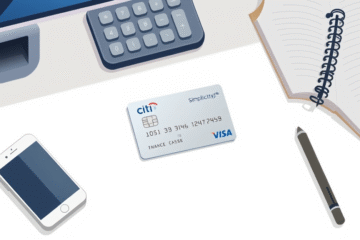Building a Positive Credit history is a fundamental step toward financial success in today’s economy.
Whether you’re starting from scratch or looking to improve your existing credit score, understanding the key strategies can make a significant difference in your financial journey.
In this comprehensive guide, we’ll explore the essential steps and proven methods to establish and maintain a solid credit foundation that will open doors to better financial opportunities.
Understanding Credit History
A credit history is a detailed record of how you manage debt and financial obligations.
This record significantly impacts your financial health by showcasing your credibility to lenders and other entities.
Understanding its importance can empower you to make wiser financial decisions.
Components of a credit history include:
- Types of credit accounts, such as credit cards and loans.
- Repayment history, indicating punctuality in paying debts.
- Credit inquiries or applications for new credit accounts.
- Public records like bankruptcies or foreclosures.
A positive credit history signifies responsible handling of financial commitments.
This can lead to more favorable credit terms like lower interest rates.
Evaluate Your Credit Score to see the benefits of a strong credit history.
Maintaining a positive credit history is pivotal for financial success and stability.
Pay Your Bills on Time Consistently
Consistently paying your bills on time plays a pivotal role in building a strong credit history. This action reflects your reliability to creditors, demonstrating your ability to manage debt responsibly. Your payment history is one of the most critical components of your credit score, making up approximately 35% of it according to myFICO. Missing payments can cause significant harm, but timely payments can boost your score gradually.
It’s important to recognize that not all bills directly impact your credit score. However, the following bills are crucial for credit reporting:
- Credit card payments
- Car loans
- Mortgage payments
- Student loans
To ensure the timely payment of bills and to track your expenses efficiently, consider using a financial tracking app like Mint. This app helps you manage your bills effectively and keep your credit score intact by avoiding overlooked payments.
By managing your finances through reliable platforms and maintaining a disciplined payment routine, you can truly enhance your financial profile.
Use Credit Responsibly
For responsible credit use, consider making timely payments on your loans or credit cards. This action builds trust with lenders and can improve your credit score significantly.
- Do pay your total balance every month to avoid interest fees.
- Do utilize less than 30% of your credit limit, as this helps maintain a healthy credit score.
- Do regularly check your statements to monitor for errors or fraudulent charges.
- Do not skip payments, as missed payments can damage your credit history quickly.
- Do not open multiple credit accounts at once, as this can negatively impact your score.
- It’s crucial to understand and adhere to the terms and conditions of your credit card agreement.
- Really important: Always make sure your payments are on time, as delayed payments often lead to increased interest rates.
Being responsible with credit includes borrowing only what you can afford to repay easily and not overextending your financial obligations.
Establish a Relationship with a Bank
A solid banking relationship contributes significantly to a positive credit history, offering myriad benefits, including improved loan terms. It establishes trust with financial institutions, facilitating smoother financial transactions and assistance.
Opening a savings account, alongside consistent, timely deposits, is an effective way to build rapport with a bank. Learn more about building bank relationships.
-
- Engage proactively with your banker by seeking advice on your financial path and exploring their services.
- Maintain regular communication, creating a pattern of transparency.
- Leverage tools such as online banking to keep track of transactions and show financial responsibility.
- Establish credibility by responsibly managing a credit card; it demonstrates your financial reliability and expands credit types.
Applying for a credit card and responsibly managing payments fortifies trust, enhancing creditworthiness and potential lending opportunities. Additionally, choosing a bank that aligns with your goals is crucial for long-term financial synergy. Healthy, ongoing engagement with your bank can lead to favorable financial opportunities.
Establishing a strong, reliable relationship with a bank can ultimately open doors to enhanced financial services and opportunities.
Enroll in Programs like ‘Cadastro Positivo’
Enrolling in programs like ‘Cadastro Positivo’ can significantly impact your creditworthiness. These initiatives aim to gather comprehensive financial data.
This information is crucial because it allows institutions to accurately assess your credit profile.
One of the primary benefits of programs like ‘Cadastro Positivo’ is that they consider your full payment history.
This includes bills paid on time, rather than focusing solely on past defaults or delays.
This shift provides a more balanced and fair view of your credit history.
According to ENEL, the program securely shares data to enhance credit assessments.
Participating in such programs can open doors to better credit terms, as it increases your credit score by reflecting positive behaviors.
For more information, visit Cadastro Positivo SPC Rio.
Remember that building a positive credit history is a marathon, not a sprint.
By following these guidelines consistently and maintaining responsible financial habits, you’ll be well on your way to establishing a strong credit profile that will serve you well in the years to come.



0 Comments